#Best Original Score
Text
ORIGINAL SCORE
Shortlisted: The Boy and the Heron / Eileen / Occupied City / Oppenheimer / Queens of the Qing Dynasty / Scarlet / A Thousand and One
THE NOMINEES ARE:

CHILE '76
Original Score by Mariá Portugal

KILLERS OF THE FLOWER MOON
Original Score by Robbie Robertson
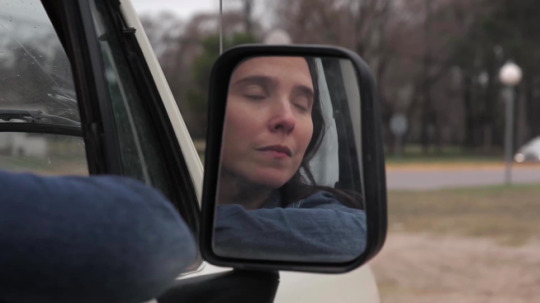
TRENQUE LAUQUEN
Original Score by Gabriel Chwojnik

THE ZONE OF INTEREST
Original Score by Mica Levi
AND THE CRISTAL GOES TO...

POOR THINGS
Original Score by Jerskin Fendrix
#2023 Film Awards#Best Original Score#Jerskin Fendrix#Poor Things#Mariá Portugal#Chile '76#Robbie Robertson#Killers of the Flower Moon#Gabriel Chwojnik#Trenque Lauquen#Mica Levi#The Zone of Interest
7 notes
·
View notes
Text
taking a detour from my usual content here for a moment :
as someone who is studying media scoring, i want to weigh in a bit on the Best Original Score fiasco going on between Babylon fans & All Quiet fans.
The category for Best Original Score is judged on how the score accompanies the film in the sense of style, mood, tension, etc.
The category is not based on which score is the most fun to listen to. (Even if it was, All Quiet would still get my vote).
Babylon is a fun score. It’s fresh, 1920s jazz-influenced, and fits the era of the movie perfectly.
However, that’s where I felt the score ended for me.
In the sense of helping to create tension or move things along, it fell a bit flat.
All Quiet’s tension heavily relies on the score. I saw a lot of people complaining about how the score only had three notes. This is actually a very small portion of the score. Most of the time, the score is barely noticeable besides being there to help create a sense of unease. Even then, the returning motif serves as a symbol in the plot, sort of comparable to the Force Theme in Star Wars.
The score is almost the opposite of Babylon. Rather than constantly in your face, it relies on complete subtlety, which I think can only really be pulled off in a film like All Quiet.
Overall, both scores are killer, I just personally (and from a media scoring study standpoint) believe that All Quiet fit the category’s criteria a but better.
———
i have no real reason to post this other than wanting people who may not be as into the “background” pieces of film to know exactly what it is that film scoring is supposed to achieve.
i think composers/movies like John William/Star Wars or the MCU have made general filmgoers believe that a score needs to be memorable and present, but in reality, that’s not the purpose of a film score. The score should be a background piece. It’s incredibly necessary to a film but it isn’t the main focus.
#all quiet on the western front#oscar2023#oscar winner#film score#composer#babylon#best original score#this is just me using my music degree but pls hear me out#i will die defending All Quiet’s Best Score award#oscars
49 notes
·
View notes
Text
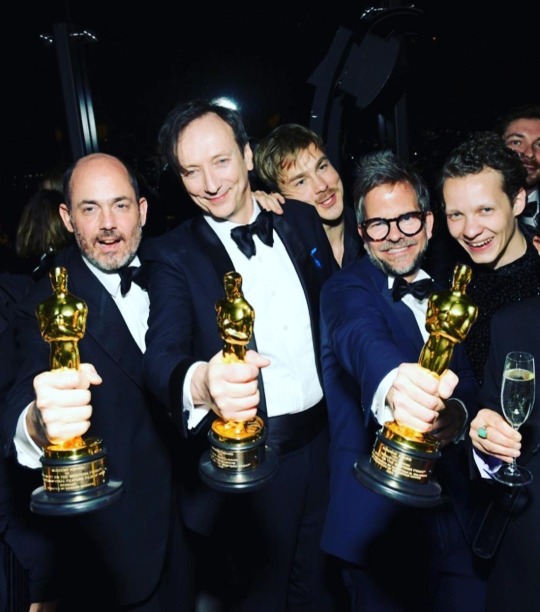
All Quiet on the Western Front celebrating their Oscar wins: Edward Berger, Volker Bertelmann, Albrecht Schuch, Christian M. Goldbeck and Felix Kammerer.
© Netflix / Charley Galley, Getty Images
#all quiet on the western front#im westen nichts neues#edward berger#volker bertelmann#albrecht schuch#christian m goldbeck#felix kammerer#oscars 2023#oscars#oscar winner#best international feature film#best original score#best production design#best cinematography#charley galley#getty images#german cinema#congratulations germany 🥳
26 notes
·
View notes
Text
100 Years, 100... Snubs - Part Four
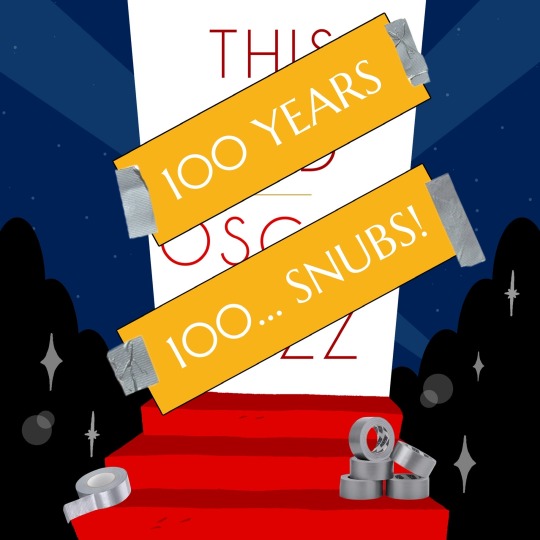
The penultimate episode of our May miniseries is here! And this week, we are returning to a few repeat boot victims and some of our favorite oft-discussed films and performances. This round of snubs and boots includes terrifying bundles of sticks (cough), being 4′8″ and dying, codpieces, visions of the afterlife, lump twins, Mike Leigh performers, Spike Lee performers, horror movies, the upcoming live action The Little Mermaid, and lots more!
Subscribe:
Spotify
Apple Podcasts
Google Play
Stitcher
youtube
youtube
youtube
#Academy Awards#Oscars#Oscar snubs#Rosemary's Baby#Hail Caesar#The Little Mermaid#Spike Lee#The Blair Witch Project#Mulholland Drive#Kate Hudson#Best Original Score
16 notes
·
View notes
Text
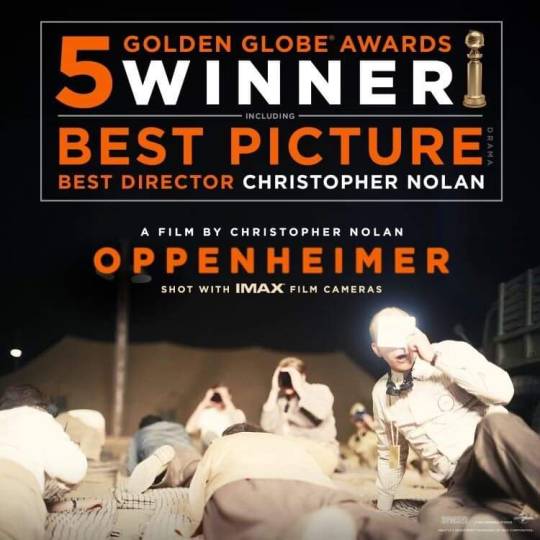
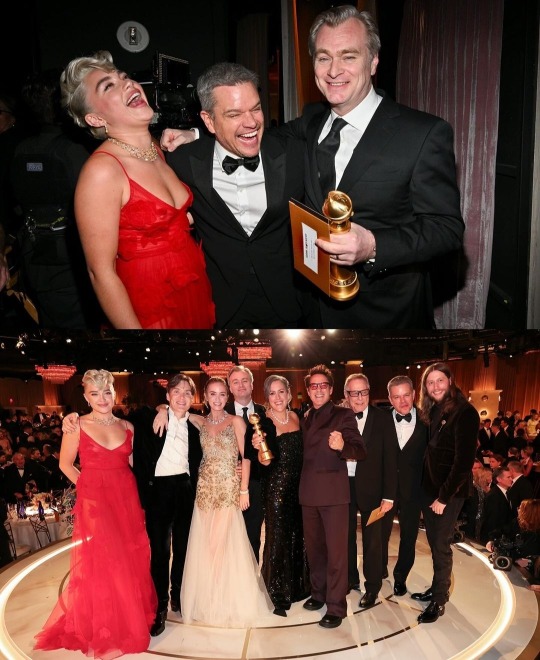
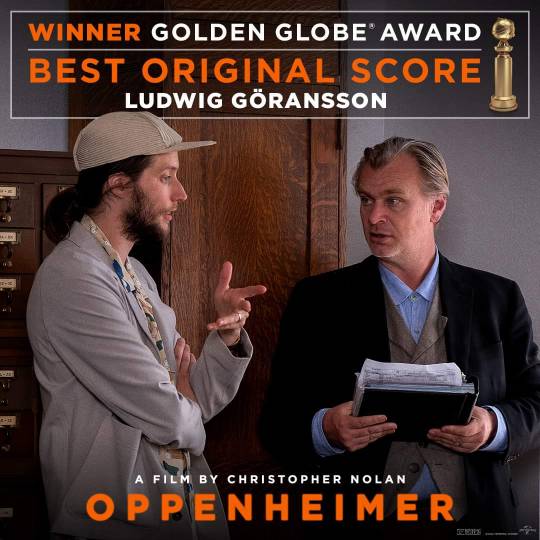
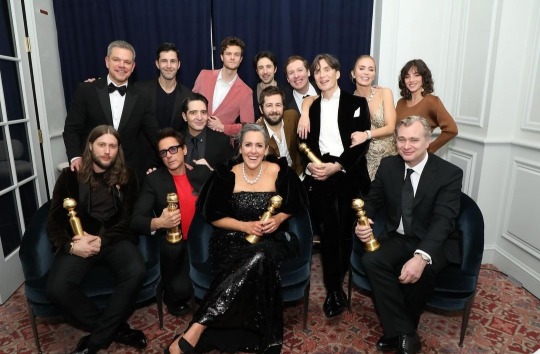
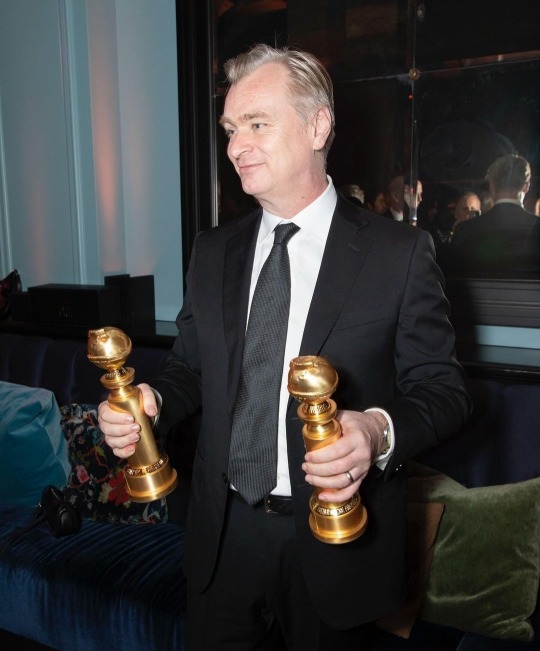
#Oppenheimer#oppenheimer movie#2023#2024#golden globe#golden globes#winner#drama#best picture#best director#Christopher Nolan#Chris Nolan#Nolan#best actor#Cillian Murphy#best supporting actor#Robert Downey jr#best original score#ludwig göransson#movie#cinema
4 notes
·
View notes
Text
WINNER
‘OPPENHEIMER’ wins Best Original Score at the #GoldenGlobes
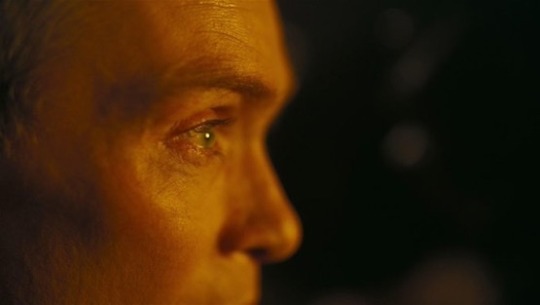
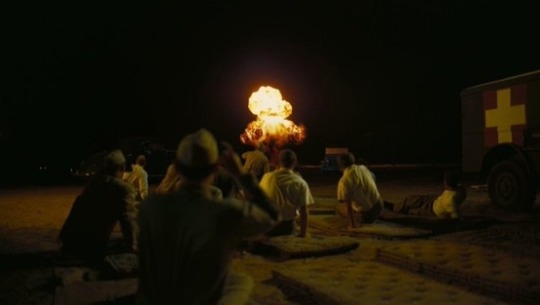
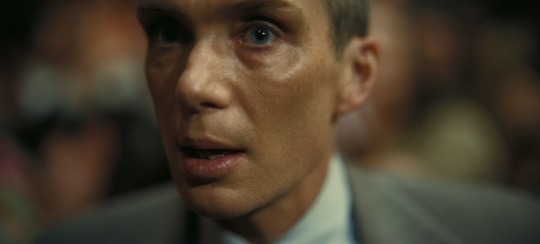

2 notes
·
View notes
Photo
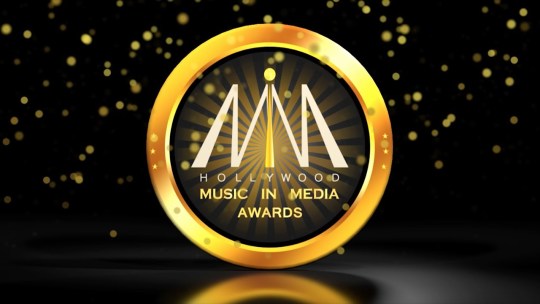
(via 14th Hollywood Music in Media Awards: le nominations)
#hmma#hollywood music in media awards#barbie#wonka#the little mermaid#best original song#best original score
2 notes
·
View notes
Text
Colin Stetson Interview: The Enticing and Inviting Score for The Menu
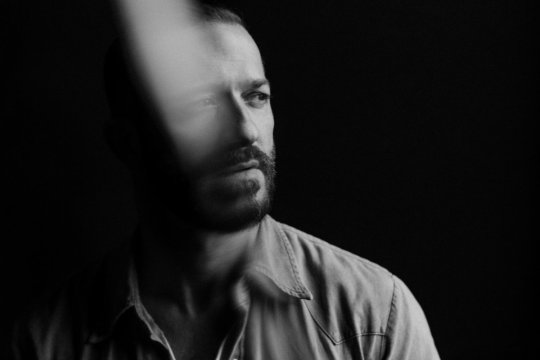
BY JORDAN MAINZER
John Williams. Hans Zimmer. Howard Shore. These are some of the few heavy-hitters you associate with film scoring, especially around awards season. For horror films, you usually think of folks like John Carpenter or Dario Argento. But over the last half-decade, a rash of electronic or avant-garde classical producers and musicians have made names for themselves as in-demand movie composers. Two of the nominated composers for the Oscar for Best Original Score this year are experimental band Son Lux (Everything Everywhere All At Once) and Hauschka’s Volker Bertelmann (All Quiet on the Western Front). And since 2018, in-demand horror director Ari Aster has employed the unmistakable stylings of instrumentalists and electronica masters for his first three films, Hereditary, Midsommar, and the upcoming Beau Is Afraid. It’s saxophonist Colin Stetson, who we’ve covered many times live, reviewed, and interviewed, who offered his talents to Hereditary, the film that essentially broke him out as an accomplished film composer, and the name you think of when thinking about a new wave of leftfield film scorers.
The latest film to take advantage of Stetson’s compositional prowess is Mark Mylod’s comedy horror satire The Menu, released in theaters late last year and currently streaming on HBO Max. About an inter-connected group of diners traveling to an exclusive restaurant operated by a celebrity chef (Ralph Fiennes), the film’s sort of a cross between Midsommar and Rian Johnson’s Knives Out films. Like Hereditary, the frames and the sounds on The Menu are inseparable once you’ve seen the film; that is, listening to Stetson’s original soundtrack, though it is its own piece of music, you can’t help but see the faces of Fiennes, Anya Taylor-Joy, Nicholas Hoult, and Hong Chau and remember the biting, horrific events that unfold in the film. It’s also another unique entry in Stetson’s ever-growing oeuvre, its palate based in orchestration and string instruments like violin, viola, cello, bass, mandolin, and nyckelharpa, along with the usual saxophone as well as Tibetan bowls, piano, and choral vocals. Sax arpeggios and pizzicato strings, including plucked piano strings, helped Stetson achieve the ultimate contrast of light and dark, beauty and harshness that pervades each frame of the film and its overall arc and mood.
I spoke with Stetson late last fall over Zoom from Montreal about The Menu, his score approach and process, coming up with soundtrack track titles, and how composing for film compares with making solo studio albums. Read our conversation below, edited for length and clarity.
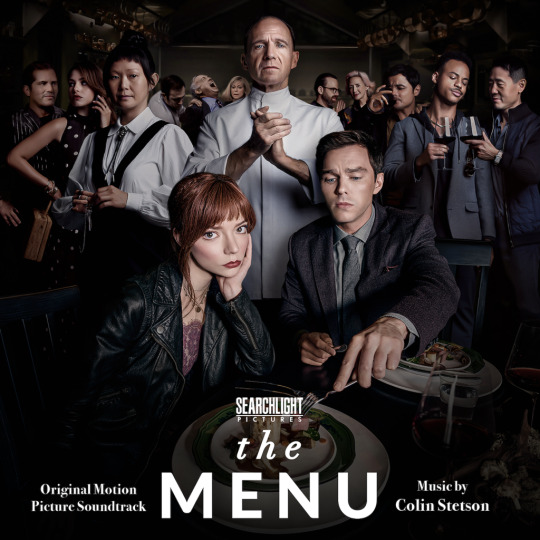
Image courtesy of Milan Records
Since I Left You: Was there anything unique about your approach to your score for The Menu in comparison to your approach to other scores you’ve done?
Colin Stetson: This one was certainly the most decidedly rhythmic at its core. So much of the bones of it is bounded in a very crisscrossing, rhythmic scaffolding, this thing that can be fun, light, and prancing at times, and also incredibly tense and driving and static.
SILY: I noticed the rhythms when listening to the first track and first single, “All Aboard”. Why did you choose “All Aboard” as the first taste of this soundtrack, in terms of it being track 1 and the first piece of music revealed?
CS: It’s a good one in terms of the first taste of something in this story. It’s the first music that happens in the film, within a minute or so of the beginning of the film, and it sets the stage so much for what happens later. A lot of the themes that are more or less weaving through all of the rest of the film start out here, in more or less innoucuous ways. They’re cloaked in a delightful sheen to entice and invite rather than forebode. I liked the idea that it would be the same opening invitation to the music as well.
SILY: When you score films, do you think about the scores as eventual standalone pieces of music, the soundtrack?
CS: Not first and foremost. I am very aware that--and this is a little more process and functional--for my initial reactions, I'm usually crafting music to picture. There’s always things from the first cut that are going to change. In many instances, on the soundtrack album, I will use my initial cue [of music] rather than what it may get edited into down the line. What ends up being manipulated on picture, in my opinion, is now standing up and propping a picture, but it might not stand on its own in a musical context. I’m aware that sometimes there are changes made to music outside of my control, outside of anything that will end up on a record. [What’s on the record are] my cuts, for lack of a better term.
SILY: Even when you’re not making music for a film, do you find yourself, in the process of musicmaking, being inspired by imagery or having images showing in the background when recording?
CS: Absolutely. It’s one of the things that’s been ever-present in my solo music, namely, and across the board for me. It’s all world-building and storytelling, very truthfully. Virtually all of the music I’ve made, the way I make it, there’s a corollary narrative structure. Imagery is something that for me informs the arc of an overall album. I’m not just making collections of songs, and those songs aren’t just collections of parts and sounds. There’s more of a thoughtful intent baked into every bit of it.
SILY: With regard to your use of vocals on the score for The Menu, did you have any newfound inspirations or intentions?
CS: There was always going to be this element of the sacred, the revelatory, the worshipful aspect to all of it. Wrapped up in the main character of the chef is a very profound love for the subject matter and craft. It felt apt for that to be represented by vocals, especially as the film neared its climax.
SILY: Is coming up with track titles for the soundtrack as simple as taking a cue from what’s happening in the movie? Are they difficult to mull over?
CS: Not really. Some of them are quite obviously what they were on a cue sheet. “Taco Tuesday” was the cue all along. Did I think of possibly changing that? Yeah, but when was the next time I was going to have the option of naming a song “Taco Tuesday”? It ties intrinsically to the film and doesn’t give anything inherent away, and it’s certainly not lofty. The track sheet, when you see it on the back of the album, there are aspects that ultimately tie in with the arc of the film’s story. I like to have some of the titles be rooted and reflected in that. Sometimes, I take it from dialogue and try to boil it down to an essence of what it is that scene is doing. Others are a little bit more esoteric. It’s not like album titles on a record of mine. Those are usually a lot more exhaustive, because ultimately, the score has its story. It has its narrative. All these cues were written for picture, for themes happening in the film. When I’m making my own solo record, the narrative and the language used is coming from a world nobody gets to see except for me. I do tend to take a different tact with that titling in comparison to soundtrack titling.
SILY: “The First Cheeseburger You Ever Ate” will also never be a Colin Stetson title.
CS: Absolutely not, but at the same time, it ties it to the film and is representative of a bigger idea in peoples’ personal experiences. That piece of music is the most loving, beautiful, angelic, childlike. It’s embracing and getting back to basics and everything made anew. That title gets to be tied very concretely and nods to experiences we had.
SILY: How, over the years, have you grown as a composer?
CS: I’d like to think in most ways. [laughs] Certainly in terms of the process. I’ve learned how it is I like to work and have streamlined that process. With every job, [there’s] something new I haven’t opened up with before. By the end, I feel as though that toolbox and comfort zone has expanded. Compositionally, I’m more able to react to picture in ways that really serve it. I’m able to do more with less. I can always sit back, watch the finished product, and understand where things really work, work, and are fine. For those that are fine, you understand how to make it, on another offering, work. In this, as in everything, it’s all a path. I can adore the object after it’s made and still understand the things about it that I can learn from and improve in subsequent offerings. I am lucky in that I have a strong sense of love and admiration for the objects I make and an equally strong instinct for the self-critical. I can identify things I deem learning instances for improvement. It’s just a constant state of that with no real destination.
SILY: Have you ever done a live score to a film you’ve composed for? If not, would you consider it?
CS: There’s talk of that to come, so we’ll see. There’s certainly talk of presenting music from scores live. With luck, time, and effort, it will start to happen in the coming years.
SILY: What’s next for you in the short and long term?
CS: I’m working on another feature I can’t talk about yet. I’m in the midst of two solo records that will see the light of day in the next year. Uzumaki is finally coming out. There are numerous other things in the works, but those are the ones right on the precipice.
SILY: Are you making more Void Patrol music?
CS: There are certainly gonna be some shows. Who knows? I’m sure we’ll get up to something.
SILY: Do you tend to consume unrelated media when you’re writing or recording music?
CS: I expose myself to certain things when I’m working on certain things: You can’t help but be influenced by what it is you’re filling your head with. I try to shepherd my overall existence in particular ways when working, depending on the space I want to be in. I don’t know I’ve ever practiced in total abstinence. The years I did Hereditary, I didn’t watch horror or listen to anything in that genre. Certain things can be mired in trope that I like to stay away from. I have a permanent abstinence on the types of things that might lead one in a direction that’s a bit more heavily trod.
SILY: That said, is there anything you’ve been listening to, watching, or reading lately that’s caught your attention?
CS: I’ve read a book recently I did not enjoy, so I won’t talk about that one. [laughs] In the fall, I tend to get into a very re-ready space. I read two Jim Harrison books recently that I always enjoy, The River Swimmer and Returning to Earth. Hard-Boiled Wonderland and the End of the World by [Haruki] Murakami, which is my all-time favorite. Christopher Paolini’s To Sleep in a Sea of Stars was fun, beautifully imagined sci-fi and reads like watching a movie. It’s visually very striking and almost popcorn in terms of how accessible and fun and encompassing it is. Similarly, Andy Weir’s Project Hail Mary was a cover-to-cover, fast, fun, effortless read.
Music-wise, I’m not coming up with anything new, so I’ll leave it at the books.
#interviews#colin stetson#milan records#the menu#john williams#hans zimmer#howard shore#john carpenter#dario argento#academy awards#best original score#son lux#everything everywhere all at once#hauschka#volker bertelmann#all quiet on the western front#ari aster#hereditary#midsommar#beau is afraid#mark mylod#ralph fiennes#anya taylor-joy#nicholas hoult#hong chau#zoom#void patrol#jim harrison#the river swimmer#returning to earth
2 notes
·
View notes
Text
ORIGINAL SCORE
Shortlisted: Great Freedom, God's Creatures, Happening, The Northman, The Wonder
THE NOMINEES ARE:
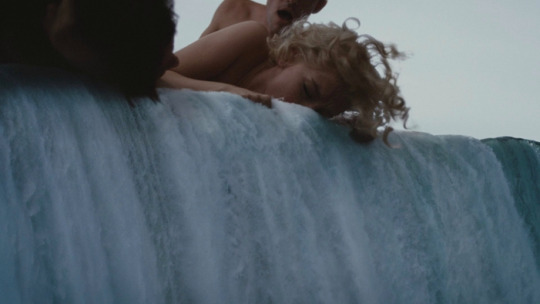
BLONDE
Original Music by Nick Cave and Warren Ellis
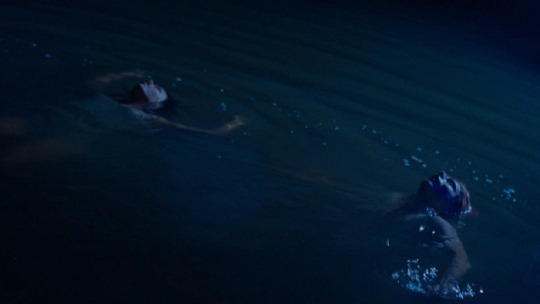
BONES AND ALL
Original Music by Trent Reznor and Atticus Ross
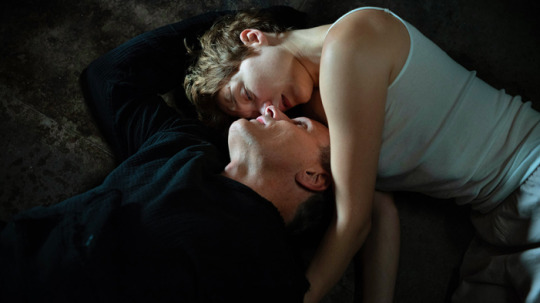
CRIMES OF THE FUTURE
Original Music by Howard Shore
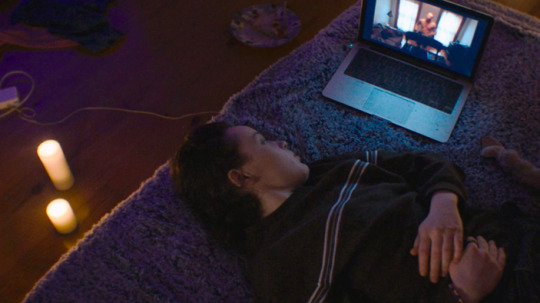
WE'RE ALL GOING TO THE WORLD'S FAIR
Original Music by Alex G
AND THE CRISTAL GOES TO...
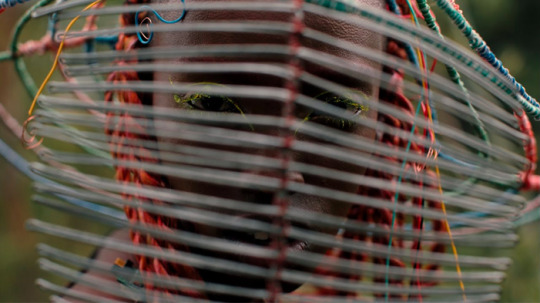
NEPTUNE FROST
Original Music by Saul Williams
#2022 Film Awards#Best Original Score#Neptune Frost#Saul Williams#Blonde#Nick Cave#Warren Ellis#Bones and All#Trent Reznor#Atticus Ross#Crimes of the Future#Howard Shore#We're All Going to the World's Fair#Alex G
3 notes
·
View notes
Text
The Oscar for Best Original Score goes to "All Quiet On The Western Front".
I'm not going to say it. 😐
#Oscars 2023#Oscars live blogging#the war movie almost always wins#they did Babylon dirty#best original score
0 notes
Text







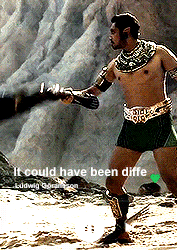

Wakanda Forever soundtrack | personal favourites (part 1/2)
BONUS
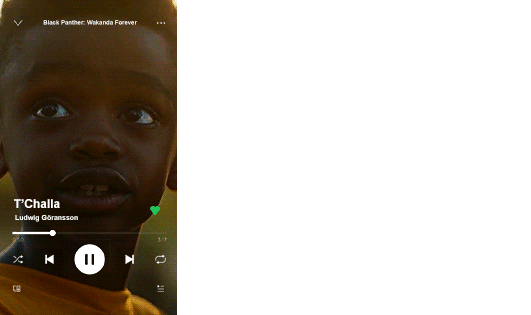
(insp. & tutorial)
#bpwf not being eligible for best original score is my villain origin story#i am *benoit blanc's voice* confounded#baffled#bamboozled even#i spent a ridiculous amount of time on this#did it turn out perfect? nope#but c'est en forgeant qu'on devient forgeron so fuck it#black panther: wakanda forever#wakanda forever#marvelgifs#by lus
62 notes
·
View notes
Text
100 Years, 100... Snubs! - Part Five
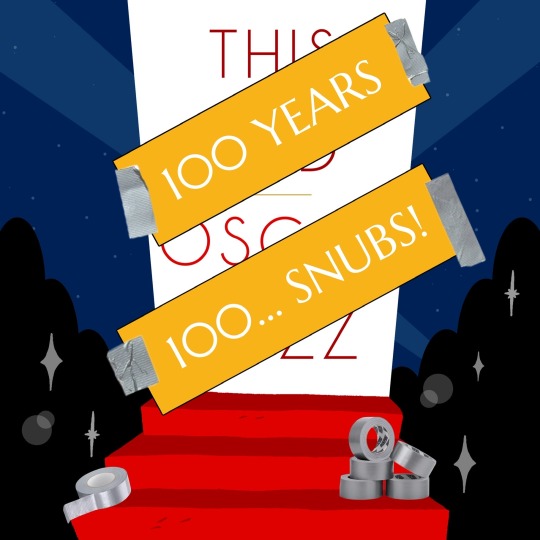
We’ve arrived at the grand finale of our blowout May miniseries 100 Years, 100... Snubs! It’s all been leading up to this Red and Wild strawberry social with guests arriving, boots handed out with abandon, and our picks for the biggest Oscar snub of all time! We also dive into a feast of topics including hating Braveheart, corny 1970s disaster movies, running times of nominated Documentary Features, international feature eligibility issues, double Supporting Actor nominations in 1991, Nicole Kidman’s gaze, which one of us is a bigger You Can Count on Me fan, and 100 Years, 100... Snubs! SNUBS. Special thanks to all of our listeners for sticking with us week after week, film after film -- we hope you all had fun with this miniseries!!
Subscribe:
Spotify
Apple Podcasts
Google Play
Stitcher
youtube
youtube
#Academy Awards#Oscars#Nicole Kidman#Toni Collette#Best Actress#Barbra Streisand#Best Director#Best Picture#Best Original Song#Best Original Score#Mark Ruffalo#Anne Baxter#Coraline#Pam Grier
11 notes
·
View notes
Text
Why does Yunobo's sage theme go so fucking hard
#While Tulin's progression from doubt to accepting the stone is the best written#Yunobo's has the best score#Yunobo's theme makes me feel like we're going to kick ganons ass RIGHT NOW#tloz#totk#yunobo#I love him so much#Rijus theme also goes hard but it feels a lot more calm and collected compared to Yunobo's#Which thematically makes sense#Since she's#You know#A fucking gerudo warrior queen#Meanwhile Sidon and Link are shaking hands meme with ''I have to do everything myself so no one else gets hurt'' syndrome#Holy shit I think all the sages reflect different aspects of links original heroes journey as well as his overall#''you don't have to do this by yourself you know'' arc in totk#Holy shit gotta make a separate post about that
14 notes
·
View notes
Text
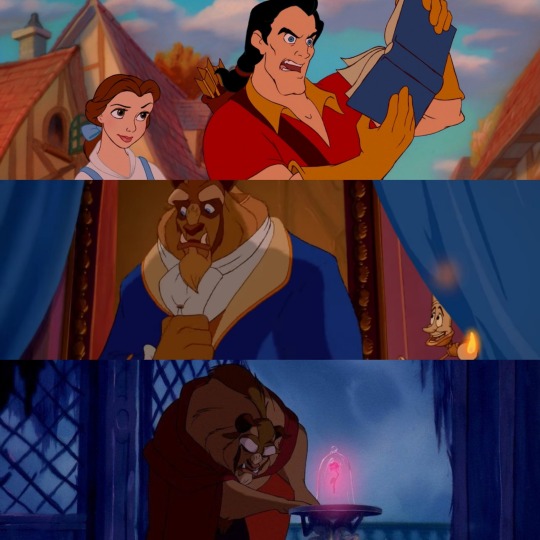
Beauty and the Beast (1991, Gary Trousdale and Kirk Wise)
08/02/2024
Beauty and the Beast is a 1991 animated film directed by Gary Trousdale and Kirk Wise, produced by Walt Disney Feature Animation and distributed by Walt Disney Pictures.
It is the 30th Disney Classic, it is the third film of the Disney Renaissance, and is based on the fairy tale Beauty and the Beast by Jeanne-Marie Leprince de Beaumont, taking some ideas from the 1946 film of the same name. The film's music was composed by Alan Menken, while Howard Ashman, to whom the film is dedicated (he died a few months before the film's release), was the author of the lyrics.
Beauty and the Beast was released in the United States of America on November 13, 1991. The film grossed $331 million at the worldwide box office against a budget of $25 million, and received widespread acclaim for its romantic narrative, animation (particularly the ballroom scene), the characters and the musical numbers. It was the first animated film ever to be nominated for the Academy Award for Best Picture, and remained the only one until 2010 and 2011 when, after the number of possible nominations for the statuette had been increased from five to ten, it was joined by Pixar's films Up and Toy Story 3. It ended up winning two, for best soundtrack and best song (the famous Beauty and the Beast, sung by Céline Dion and Peabo Bryson in the final duet). The film was also awarded three Golden Globes: best comedy/musical film, soundtrack and original song, as well as other international awards.
After the success of the 3D re-release of The Lion King in 2011, the film returned to cinemas in 3D on 13 January 2012 in American cinemas, while in Italy it was released on 13 June of the same year.
In 2002, the film was selected for preservation in the National Film Registry of the United States Library of Congress because it was "culturally, historically, or aesthetically significant".
A long time ago, in a distant country in France, there lived in a magnificent castle a prince with a handsome and charming app9, but with a spoiled, selfish and bad character.
One winter night, an older beggar woman arrived at the castle asking for asylum from the cold and offering a rose in exchange. At that point, the beggar woman transformed into a fairy; seeing the prince's selfishness, the fairy transformed him into a horrible Beast, and his servants into furnishing objects. Despite everything, however, she also granted him a chance at redemption: the rose was enchanted and would remain in bloom until the prince's twenty-first birthday.
#beauty and the beast#animation#1991#gary trousdale#kirk wise#Walt Disney Animation Studios#walt disney pictures#List of Walt Disney Animation Studios films#fairy tale#jeanne marie leprince de beaumont#alan menken#howard ashman#united states#box office#Academy Award for Best Picture#up#toy story 3#pixar#Academy Award for Best Original Score#Academy Award for Best Original Song#celine dion#peabo bryson#golden globe awards#the lion king#national film registry#library of congress#france#rose#beast#Redemption
6 notes
·
View notes
Photo

(via Previsioni Oscar 2024: Miglior colonna sonora)
#miglior colonna sonora#oscar predictions#best original score#previsioni oscar#oppenheimer#killers of the flower moon#oscars 2024#oscar 2024
0 notes